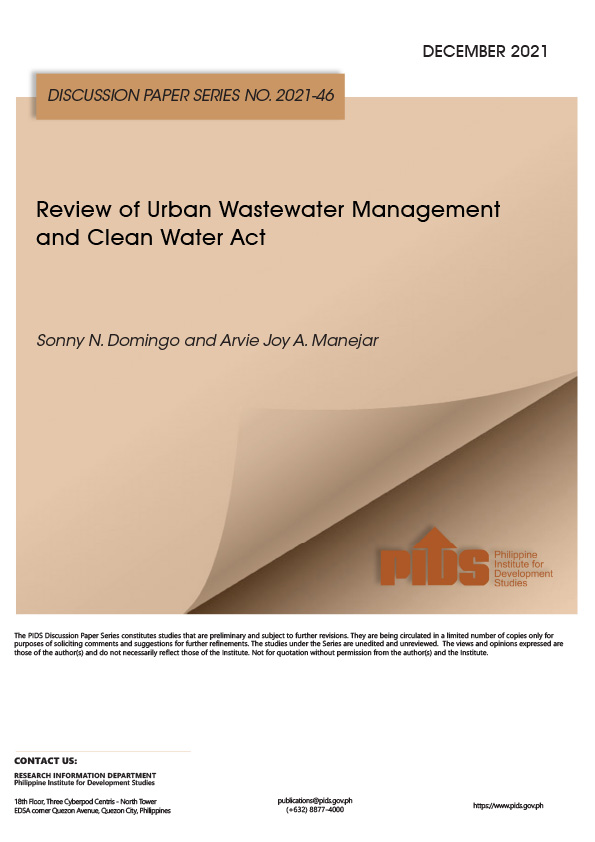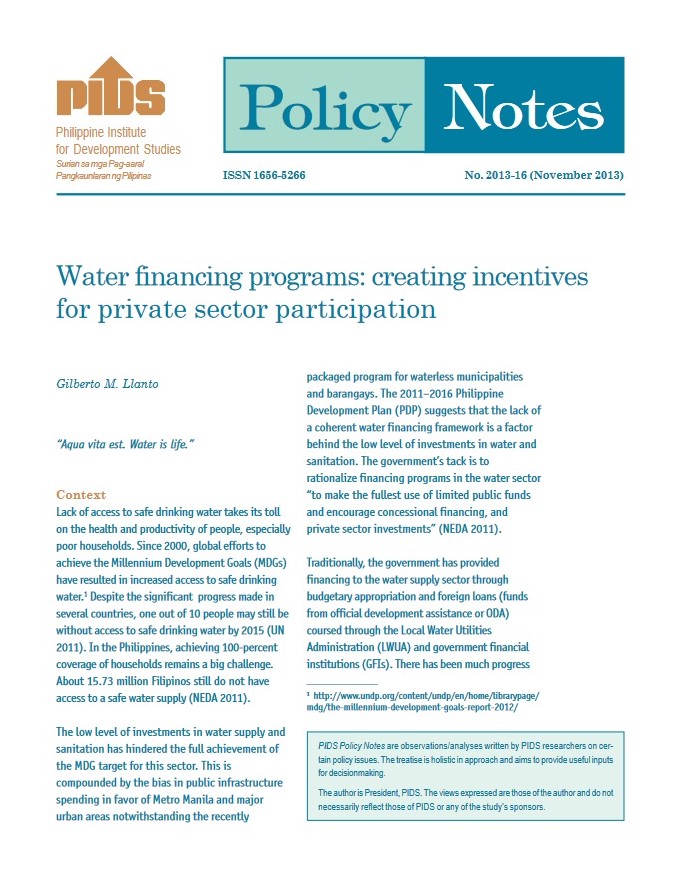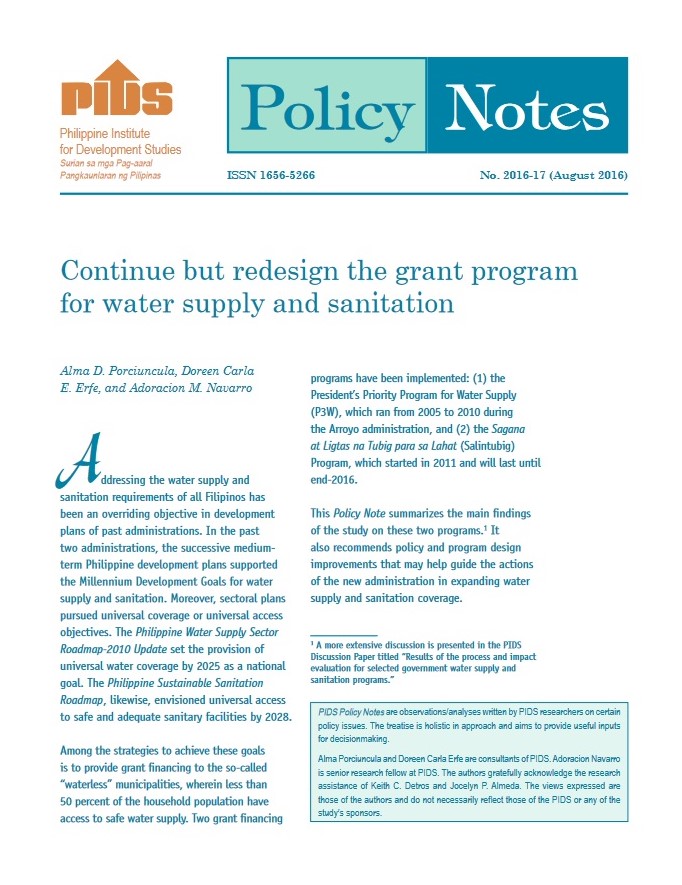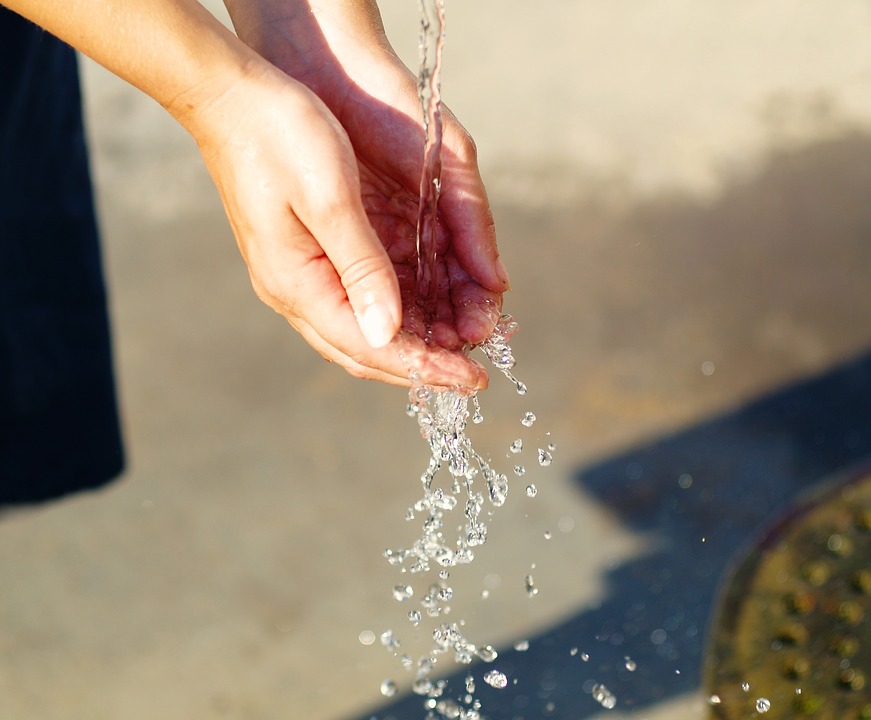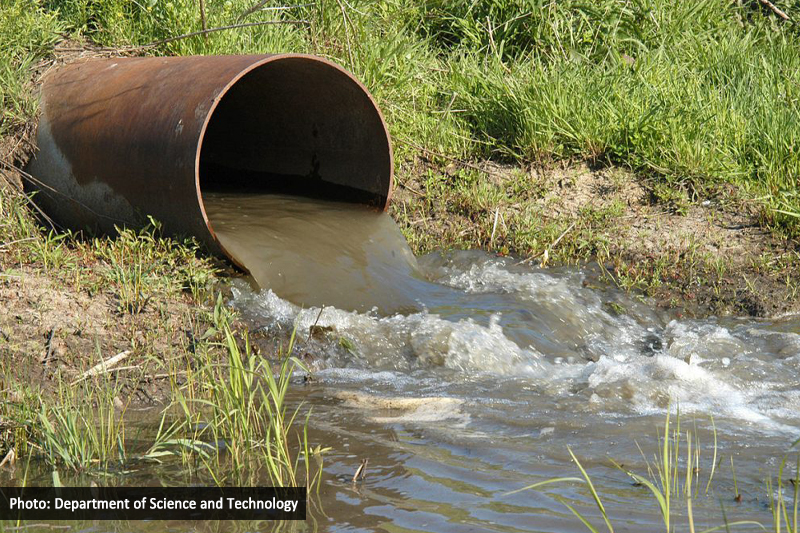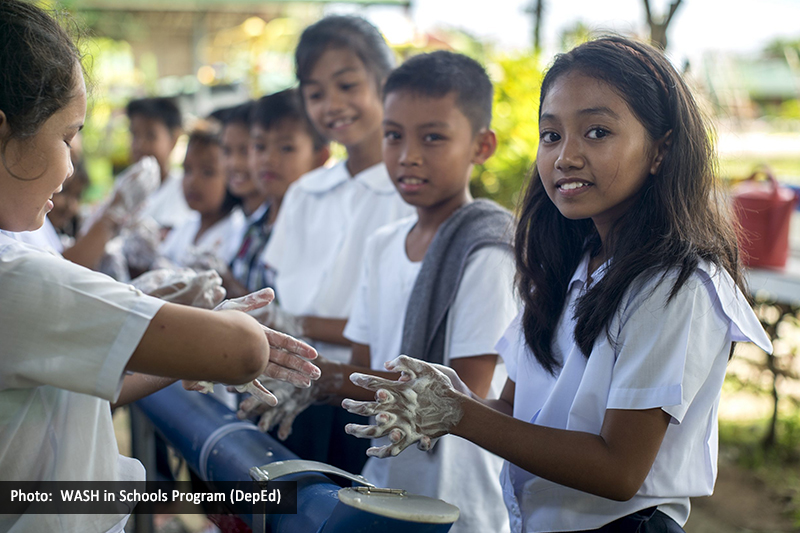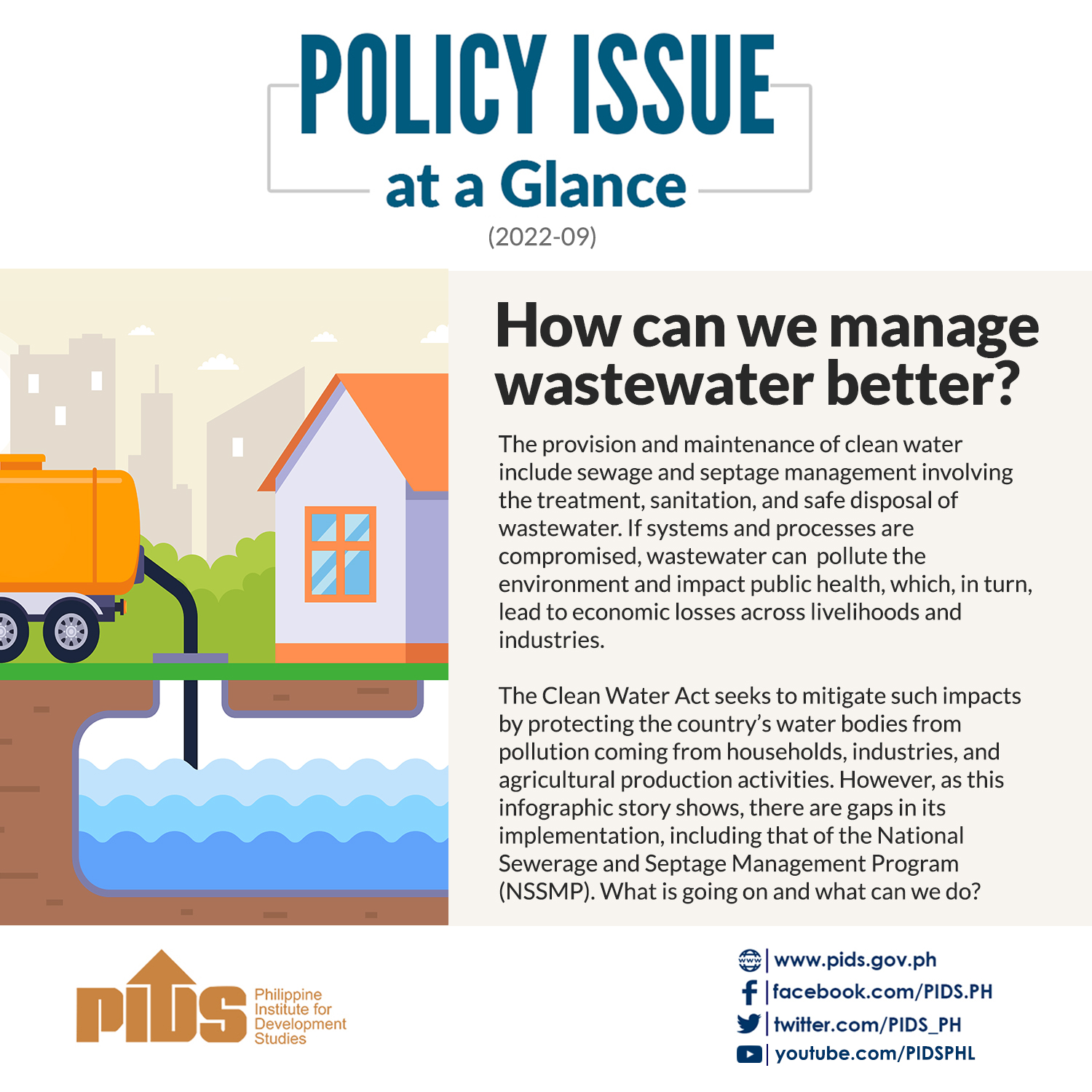Wastewater and pollution management issues are usual negative externalities in the pursuit of economic development. This is true in the Philippines where industrial and domestic refuse often end up in tributaries and major waterways, sometimes even contaminating groundwater due to improper septage and sewerage design. The passage of the Clean Water Act (Republic Act No. 9275), and the subsequent launching of the National Sewerage and Septage Management Plan (NSSMP) were expected to facilitate the accomplishment of water sectoral targets. While acknowledged to be an integral component of the country’s development agenda, wastewater management’s requirements for large-scale investments and resources were often overlooked and underfunded, adding to target shortfalls. The sector also remained plagued with institutional fragmentation and disjointed efforts in the absence of an overarching framework and master plan. Given these challenges, the study echoes the call to rationalize the sector’s institutional governance and development direction. Improved septage coverage and standardization guidelines are viable short-run interventions, while the national government orchestrates and the local government units muster interest in investing in sewerage facilities.
Citations
This publication has been cited 1 time
- Samaniego, Art. 2024. PrimeWater and BCWD launch Batangas City's first septage treatment plant. Manila Bulletin.

